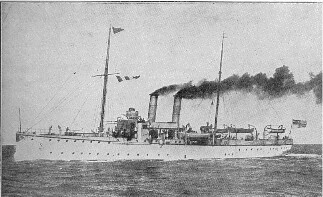
就這三段話,豬頭改了四天花了超過10小時。英文真的退步了。
The nineteenth-century European annexations of territory in the rest of the world have come to be seen as one of the attributes of modern civilization, state power, and further international diplomacy. Acquisition of non-Western territory therefore represented a means of enhancing the self-identity and attaining glory. “In earlier centuries the Westerners had seen themselves as morally superior to non-western peoples, particularly those who had been conquered,” writes Peter Duus, “but they had not necessarily seen themselves as materially or politically superior” (1995:7). Primary among these concerns, at least among English and French parliamentarians, was the so-called “white man’s burden” – Europeans wanted colonies in order to “rescue” those “latter-day people from centuries of decay, disease, ignorance, and political corruption” and brighten the dark continents with light.
In the mid-nineteenth century, as material wealth and technology became indicators of “progress” that separated the advanced from the backward, the sense of superiority gradually increased and escalated the European imperialist competition. As a result, Western imperialist impulses were directed toward establishing colonies for the purposes of free trade, as a way to compete for annexations – especially in Africa – for other reasons, too. European imperial forces hence acquired excessive influence or control over their colonies through “the exertion of power and the transfer of economic resources.” However, rather than building up a formal empire, the Europeans applied concepts such as leasehold, treaties of free trade, most-favored nation [MFN] and extraterritorial rights, mostly based upon unequal contracts, in order to obtain exclusive privileges of raw materials, markets, or naval stations. Such unequal treaty system was considered as a classic expression of “imperialism of free trade,” which manifests itself as “informal empire,” as Charles R. Fay put it in 1940, in concern with an inter-relation of economic and political actions. The goal of “imperialism of free trade” is not to place direct controls on local politics, but rather to covertly dominate through economics – “trade with informal control if possible; trade with rule when necessary” (Gallagher and Robinson 1953:545).
By the end of 1880s, Europeans in Asia (Russians in China; British in the Malay Peninsula and Burma; French in Cambodia) were primarily focused on trade and markets. In East Asia, for instance, after the defeat of the Qing during the Opium War [the First Anglo-Chinese War, 1839-42] at the hands of the British, the Chinese were forced to sign the 1842 Treaty of Nanking, which ceded Hong Kong to Great Britain and opened several ports to British trade, leading to the misfortunes of China’s era of unequal treaties. Yet the way, in terms that the British negotiated trade agreements under the threat or limited use of force rather than to attempt military conquest or subjugation, perhaps best interpreted as “concession imperialism,” a thoughtful term depicted by Duus, “was halfway between the ‘imperialism of free trade’ and direct colonial rule” (1995:8).
Under such western imperialist forces, covert or direct, Japan was soon confronted with the consequences of an unequal commercial treaty. (接下來轉折談日本明治維新)
沒有留言:
張貼留言